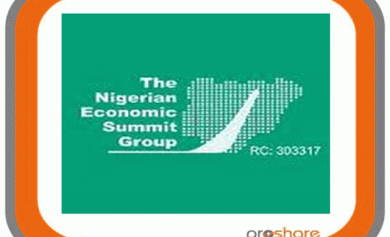
The Nigerian Economic Summit Group (NESG), has called on entrepreneurs in Nigeria to take advantage of the large economic base in the country to drive national economic growth and development.
The Chairman of NESG, Mr. Folusho Philips, who stated this during a round-table on micro, small and medium-scale enterprises competitiveness and synergy, organised by the MSME Project in conjunction with the NESG, said this became necessary with a view to strengthen synergy, benchmark, promote productivity and enhance profitability, so that the federal government’s aspirations of economic transformation could be realised.
Philips noted that over 40 million informal entrepreneurs in Nigeria, which constituted the critical mass of the Nigerian economic life, unlock the much desired economic growth.
Speaking in the same vein, the Executive Secretary, Nigerian Investment Promotion Commission, represented by the Director, Policy and Advocacy, Mr. James Ebuetse, noted that development of the MSME sector would not only catalyse the next cycle of economic growth as envisaged by the federal government, but also engender competiveness and sustainability of MSME operations.
The Micro, Small and Medium Enterprise (MSME) Project, a pilot programme of the Government of Nigeria and the World Bank and implemented by the Nigerian Investment Promotion Commission (NIPC), was designed to improve performance and employment levels of MSMEs in selected non-oil sub-sectors within three States in Nigeria Abia, Kaduna and Lagos.
Over the years, it has supported the creation of five commercially oriented, privately financed microfinance institutions currently serving over 1.2 million clients with about 48,000 borrowers in 2010 alone and has also supported 71 privately owned business development service institutions which have served over 23,000 MSMEs while working with the CBN to develop the legal and regulatory framework for credit bureaus of which three are now functioning.
The NESG study on competitiveness of the MSME sector in Nigeria was initiated to facilitate public private dialogue necessary to improve overall MSME competitiveness, enhance the development of the sector and reduce unemployment levels.
The Micro, Small and Medium Enterprise (MSME) sector forms a significant proportion (nearly 90 per cent) of Nigeria’s business and industrial segment.
As is the case in the rest of the developing economies of the world, the growth of the sector is considered to be critical to a country’s economic and industrial development. It therefore presents the biggest opportunities for employment generation and economic productivity.
In continuation of the support of the sector, The Nigeria Economic Summit Group (NESG) – a private sector think-tank working to improve the business environment of private sector participation in the economy of Nigeria, with the support of the MSME Project Nigeria conducted a quick assessment of competitiveness and synergy of the MSME sector in Nigeria.
The Director-General and CEO of NESG, Mr. Frank Nweke Jr. while presenting the findings of the study which highlighted the current situation and challenges, stated that implementation of recommendations has been the bane of the development of the sector.
He noted that infrastructure, high cost of establishing businesses, inconsistent policy environment and power related issues are the critical limiting factors to MSME competiveness. A key recommendation from the workshop is the need to improve synergy amongst stakeholders especially the government agencies.
The workshop was attended by a broad spectrum of stakeholders in the MSME sector ranging from entrepreneurs, policy makers to MSME regulators in Nigeria including the Director General of SMEDAN, Alh. Mohammad Nadada Umar, representatives of the African Development Bank, CBN, SON, MAN, NASME, the Managing Director of PHCN, DG Federal Institute of Industrial Research (FIIRO), Raw Materials Research and Development Commission (RMRDC) and a host of other Private Sector Organizations.

